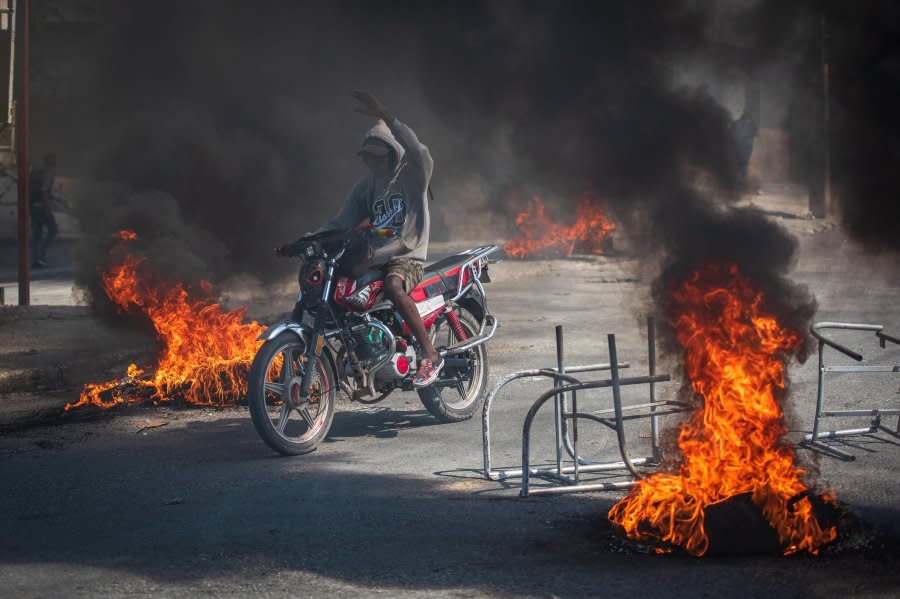U.S. citizens flee Haiti as gang violence escalates further

March 22 (UPI) -- American citizens continue to flee Haiti as gang violence picks up across the island nation, with no immediate foreign military aid expected to arrive to help the country's beleaguered police force.
A government-chartered flight carrying 80 U.S. citizens landed in Miami Thursday as those who had been holding out in the Haitian capital of Port-au-Prince, relinquished hope the situation will improve.
Hundreds of other Americans are turning to the U.S. State Department to help them get out of the Caribbean nation as the gang violence escalates. Around 1,600 U.S. citizens have filed emergency paperwork requesting help evacuating the island.
"Our hope is to keep these options available for American citizens who need it," Deputy State Department spokesperson Vedant Patel told reporters Wednesday.
Those who can afford it have hired private helicopters or other modes of transportation to escape.
Earlier in the week, a Florida couple was reunited with their 2-year-old child after leaving the toddler with friends in Haiti while the parents attended a wedding in the neighboring Dominican Republic.
The State Department has been warning American citizens not to travel to Haiti since July.
Interim Haitian President Ariel Henry resigned earlier in the month, but plans to install a transitional government have stalled, leading to a surge in gang violence. Henry has been unable to get back into the country, trapped in Puerto Rico while Haiti's airport was forced to close because of damage suffered during gang attacks.
The non-profit ACAPS humanitarian aid agency estimates over 80% of Haiti and over 60% of the capital is controlled by gangs.
Thousands of prisoners have escaped from Haiti's two largest prisons, which have fallen into the hands of gang leaders.
Charred vehicles and corpses are now common sights across the streets of Port-au-Prince, as various gangs fight with each other to increase their territory while also clashing with the Haitian National Police.
Officers in the multinational police force are willing to fight but are overwhelmed.
"We are willing to fight, we are ready to save the country. But we don't have any leadership, our equipment is falling apart, and we need air and marine support," Haitian National Police Union 17 adviser Garry Jean Baptiste told a CNN reporter on the ground in that country.
Officers in the Haitian National Police make around $200 a month while only between 30% and 40% of the force's members are equipped with body armor. The low salary and lack of equipment is stoking fears of an eventual collapse.
"We are ready for (the) multinational support force. We're ready to work with them. But the plan to receive the mission is not laid out; we think the mission will fail like the others because there is no framework to work together," Baptiste told CNN.
A tentative plan by the United Nations to send a peacekeeping force to Haiti has hit roadblocks for months. Forces from Kenya, Jamaica, Benin, Bahamas, Barbados and Chad are expected to make up that force.
U.S. President Joe Biden has attempted to fund a multinational intervention force but that effort has stalled in Congress.

